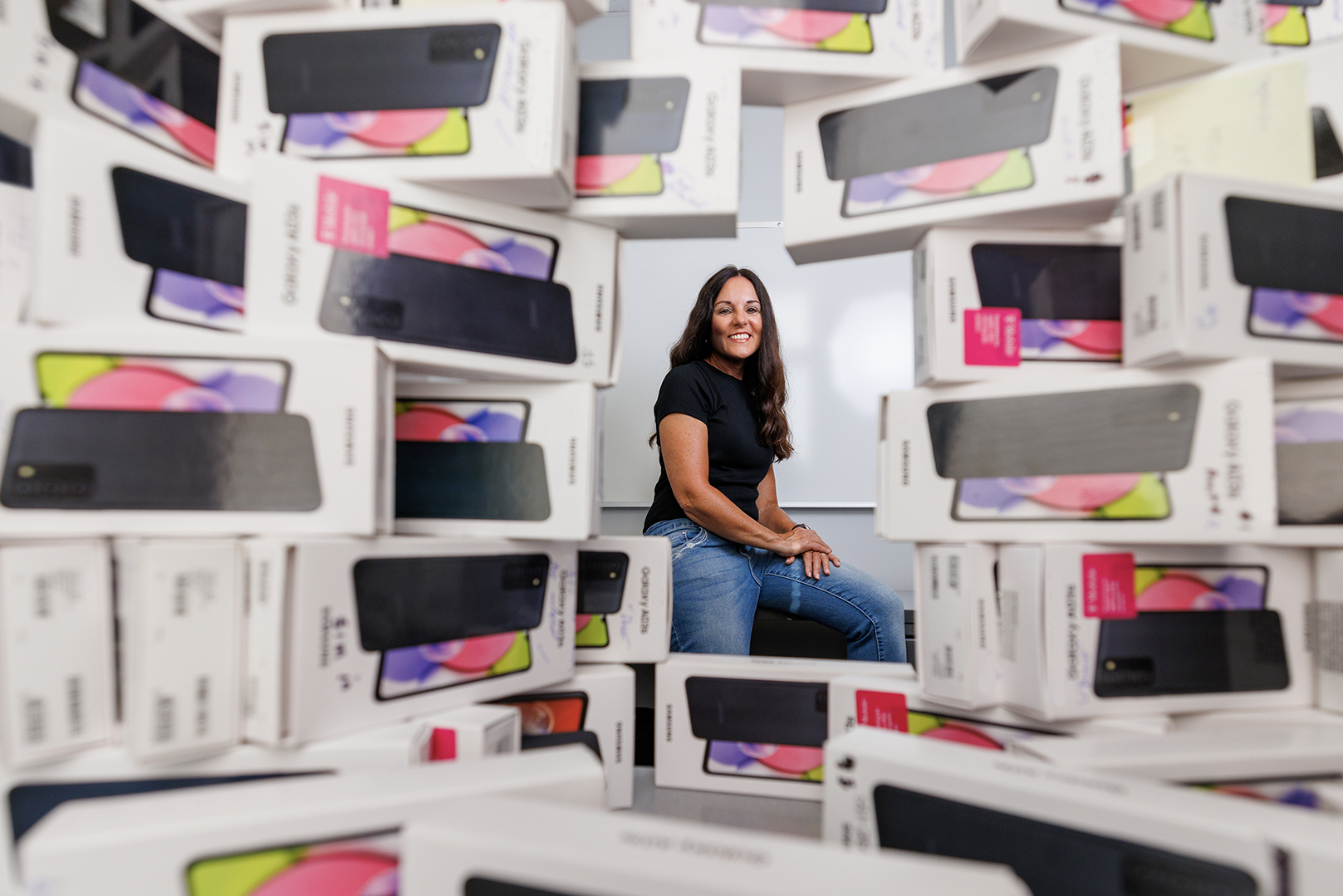Youth experiencing homelessness often lack daily contact with supportive people, leaving them more vulnerable to alcohol and drug misuse at critical junctures.
Kimberly Tyler
Husker sociologist Kimberly Tyler believes an app-based intervention could help fill that gap and redirect these youth when substance misuse may be tempting: in times of poor mental health, after sexual or physical victimization on the streets, or while socializing with risky networks, for example. Tyler and her team are developing a data-driven, app-based just-in-time intervention that provides individualized support in these moments.
“Youth don’t have to look anything up – the app is going to be running on their phone all the time,” said Tyler, George Holmes University Professor of Sociology. “It will be a step beyond what we currently have in trying to intervene in these high-risk situations.”
The goal is to curb substance misuse – which is two to three times more prevalent among youth experiencing homelessness than among their housed peers – in a way that is economical and accessible. Tyler’s strategy is both, given the increasing number of free, public WiFi hotspots and the decreasing cost of cellphones.
To develop the first-of-its-kind intervention, Tyler’s team is conducting surveys and focus groups to collect data that illuminates the connections between youths’ daily stressors, emotional management and coping behaviors. Machine learning techniques will cluster this data and generate different profiles, enabling the app to predict a user’s coping patterns and provide tailored, supportive messaging at key moments.
Youth experiencing homelessness, as well as agencies focused on helping them, are assisting in developing relevant messaging.
“One unique piece is that youth and agencies are directly involved in helping us design the intervention, which ensures it is culturally relevant,” Tyler said. “It’s a community partnership.”
The intervention will also offer proximity-based information about services. When GPS tracking detects that a youth is near a service center, the app will provide a nudge with general information about programming.
Tyler envisions the app eventually having nationwide impact. By customizing it to different locations, it could expand the reach of agencies’ services and improve lives across the U.S.
A $3.4 million R01 grant from the National Institutes of Health-National Institute on Drug Abuse supports the project.
